
The tech industry is the fastest and most rapidly advancing sector among others, and staying relevant as a developer is essentially vital and overwhelming. Every other day, new programming languages, frameworks, and methodologies are getting introduced in the market, with more in-demand skills emerging among developers. Some skills are in high demand and might become obsolete tomorrow; hence, actionable strategy and learning should be made a priority in order to stay current, relevant, and upskilled in this thriving field. Embracing the benefits of lifelong learning is an incredibly vital skill to keep in mind for developers since the tech industry is ever-changing. Developers should always be on the active lookout for learning opportunities.
Begin by setting short-term and long-term goals for learning and exploring online developer courses on platforms like Udemy, Coursera, and Pluralsight for exploring the latest industry-relevant courses. Developers also explore popular books such as Clean Code by Robert C. Martin or You Don’t Know JS by Kyle Simpson to obtain their foundation as a developer, or even dedicate extra hours each week to learn a new program, read tech blogs, or even play around with new programming languages. The key to being a good developer is staying flexible and open to change. Industry shifts need adaptability to thrive. As an illustration, as artificial intelligence (AI) continues to transform technology, programmers who are versatile and eager to master AI principles can potentially take advantage of fresh career possibilities in machine learning and automation. In this article, we will take a deep dive into the world of developers, their types, potential skills, and how to stay relevant and keep upskilling yourself. Let's go in.
Are Developers in Demand?
Yes, developers are always in demand, no matter the season or condition of the market. Since businesses are increasingly adopting new technologies and embracing digital transformation to enhance customer experience and improve efficiency, developers with unique skill demands have increased drastically. Rapid technological advancements with modern technologies like AI, blockchain, AR/VR, and machine learning need the proficiency of experienced developers to implement them. While the surge of smartphones has increased the need for mobile app development and mobile app developers. Experiencing such an incremental need for new-age apps, the rise of cyber threats needs developers who are cybersecurity experts. And finally, in the field of data science and analytics, developer's capabilities to analyze and interpret large datasets remains an incredibly on-demand skill in today's data-driven world.
What are the Essential Skills for Developers?
A successful developer possesses a seamless blend of technical and soft skills. Let's check out some of the primary skills that a developer should ideally possess:
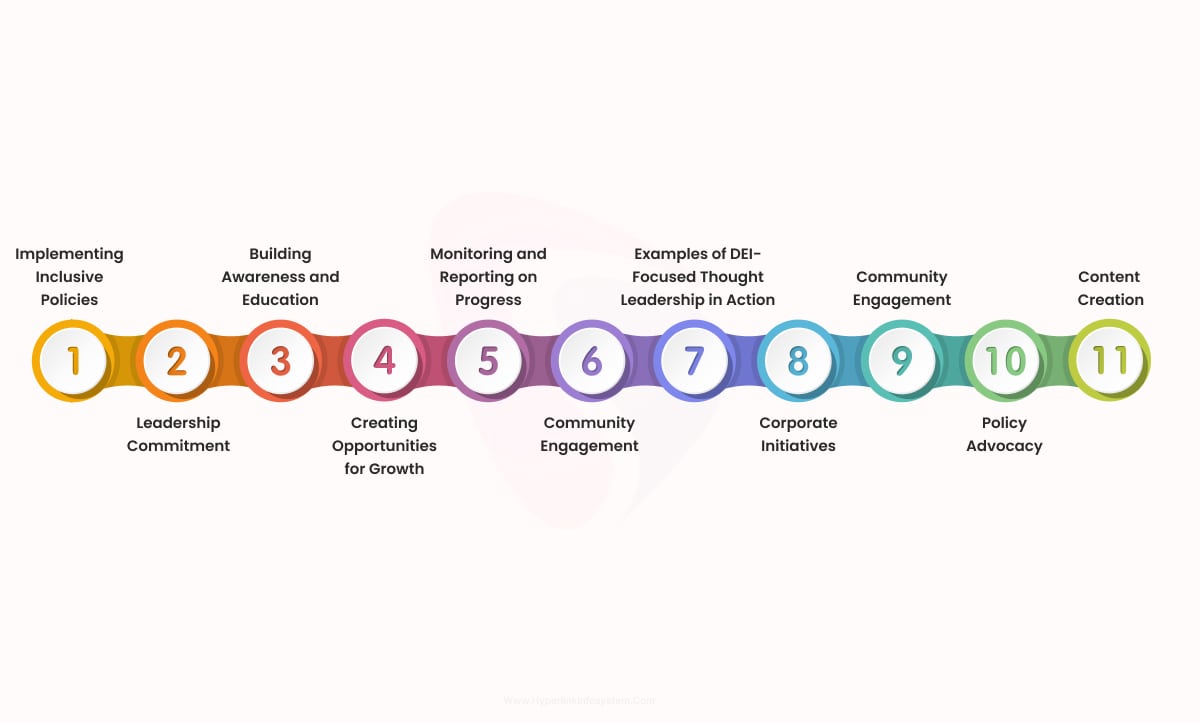
Technical Skills
- Programming Languages: Developers should have a good grasp of prominent programming languages such as Python, Java, JavaScript, C++, and more for specific role-based job hiring.
- Data Structures and Algorithms: Having a strong foundation in these concepts is pivotal when it comes to problem-solving during any kind of web, app, and software-related development issues and for efficient problem-solving.
- Database Management: SQL and NoSQL databases are the crux of understanding data storage and retrieval and having this knowledge opens up new opportunities for developers.
- Web Development: It's important for developers to have an understanding of HTML, CSS, and JavaScript in order to create bespoke web applications.
- Software Development Lifecycle (SDLC): Developers must have a profound understanding of the software development lifecycle, from requirements assemblage to implementation and maintenance.
- Version Control: Collaboration with other developers and proficiency in Git to manage code is paramount for developers.
- Cloud Computing: Developers should have knowledge of platforms like AWS, Azure, or GCP for application management and deployment.
- API Development: Developers should comprehend the ability to make and consume APIs for integrating different software components.
- Testing and Debugging: Developers should specialize when it comes to debugging code, identifying and fixing errors, and debugging code.
- Security: Knowledge of security best practices for protecting apps against vulnerabilities.
Soft Skills
- Problem Solving: Developers should possess the capacity to break down complicated situations into smaller, more manageable chunks.
- Critical Thinking: Developers should have the capacity to analyze all primary information and make informed data-driven judgments.
- Creativity: Creativity is also a crucial part of technology; otherwise, every other product will be an MVP, and the ability to think outside the box and come up with innovative solutions is a genuinely revered talent.
- Communication: Have an effective communication skill, both written and verbal, especially when it comes to professional life, to unite with team partners and clients.
- Teamwork and Time Management: Developers should possess the ability to operate efficiently in a collaborative setting while prioritizing urgent work and managing resources efficiently.
- Adaptability: Developers should never lose the ability to learn new technologies, programming languages, and frameworks to adapt to changing requirements.
- Attention to Detail: The capacity to pay meticulous attention to detail in order to avoid mistakes is a pretty wanted soft skill among developers.
Types of Developers
Developers are the ones who're coming up with innovative ideas that are shaping the industry. Let's check out the most common types of developers that are prominent in diverse industries:
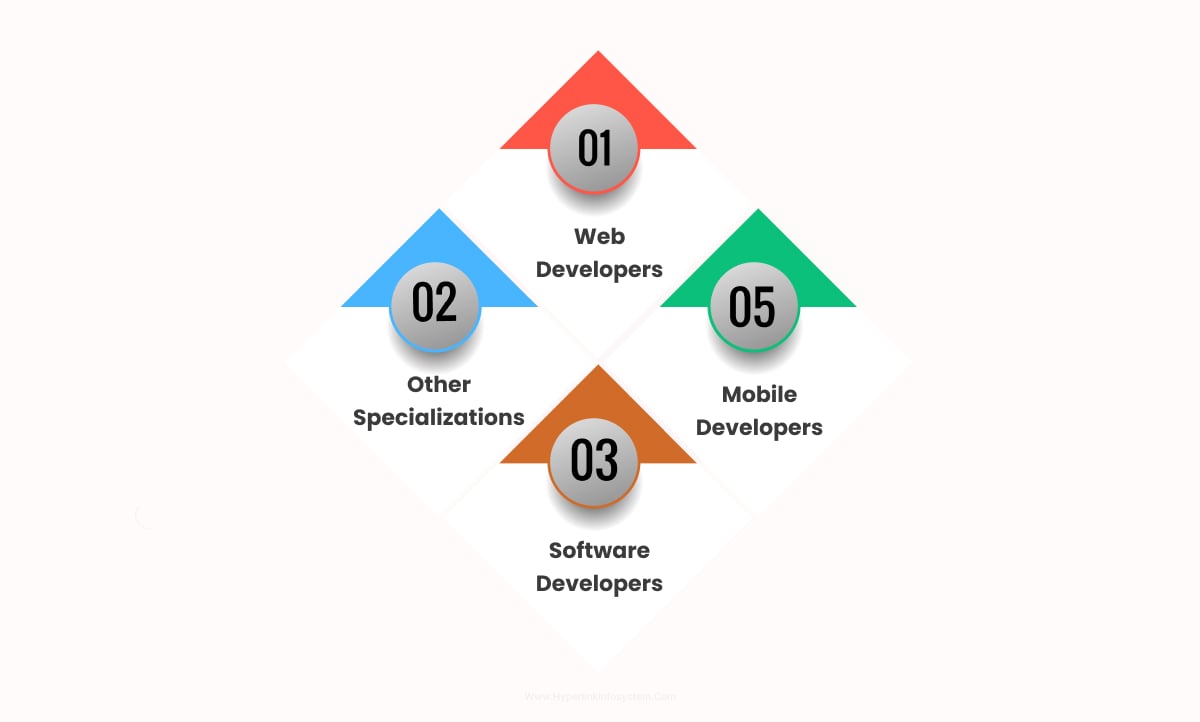
Web Developers
- Front-end Developers: When businesses examine and put their concentration on the user interface (UI) and user experience (UX) of a website or online application, they employ HTML, CSS, and JavaScript to build aesthetically pleasing, engaging interfaces.
- Back-end Developers: Back-end developers are majorly the backbone of any product and are responsible for server-side logic and database interactions. They operate using Python, Ruby, and Java programming languages, along with popular frameworks such as Node.js, Django, and Rails.
- Full-stack Developers: Full-stack developers are the holy grail of all developers. They possess a wide variety of talents, including both front-end and back-end programming. They have the liberty, flexibility, and capability to work on any part of a web application.
Mobile Developers
- iOS Developers: iOS developers mainly work for Apple products and iOS development by using Swift or Objective-C to create applications for Apple devices (such as the iPhone and iPad).
- Android Developers: When you hire Android developers, you unlock the ability to utilize engineers who create apps for Android devices with Kotlin or Java.
- Cross-Platform Developers: Cross-Platform developers have a profound understanding and expertise of both platforms. They can conveniently create apps for iOS and Android utilizing frameworks such as React Native, Flutter, or Xamarin.
Software Developers
- Desktop Application Developers: When you hire desktop application developers, they help you in creating software programs for desktop operating systems such as Windows, macOS, and Linux.
- Game Developers: When you hire game developers, they help you concoct video games for a variety of platforms, such as consoles, PCs, and mobile devices.
- Data Scientists: When you hire data scientists, they leverage a combination of statistical techniques and machine learning algorithms to extract information from massive databases.
- DevOps Engineers: When you hire DevOps engineers, they take care of overseeing the deployment, configuration, and maintenance of all of your organization's software applications.
- Security Engineers: When you hire security engineers, they primarily work to defend software and systems against cyberattacks or any fraudulent activities.
- AI/Machine Learning Engineers: When you hire AI/ML engineers, they help you create intelligent systems that can learn and respond.
Other Specializations
- Embedded Systems Developers: These developers generally work on software for devices that contain unique or peculiar functions, such as microcontrollers.
- Blockchain Developers: This is a completely different niche. Blockchain developers basically build decentralized applications and systems employing blockchain technology.
- IoT Developers: This falls into the category of wearables and sensory devices, and only a handful of developers hold specialization in it.
The particular duties and obligations of builders differ greatly with respect to the industry, project, and company. However, a solid understanding of programming languages, troubleshooting, and software development concepts is crucial for achievement in the entire development sector.
Essential Platforms for Developers
Developers generally stay engaged in the industry and are open to learning. Whether it's online courses, webinars, or tutorials, many developers like to follow the latest trends and technology to stay relevant and competitive in their own industry. They also achieve this by attending workshops or conferences, but let's check out some essential platforms that every developer must be well aware of:
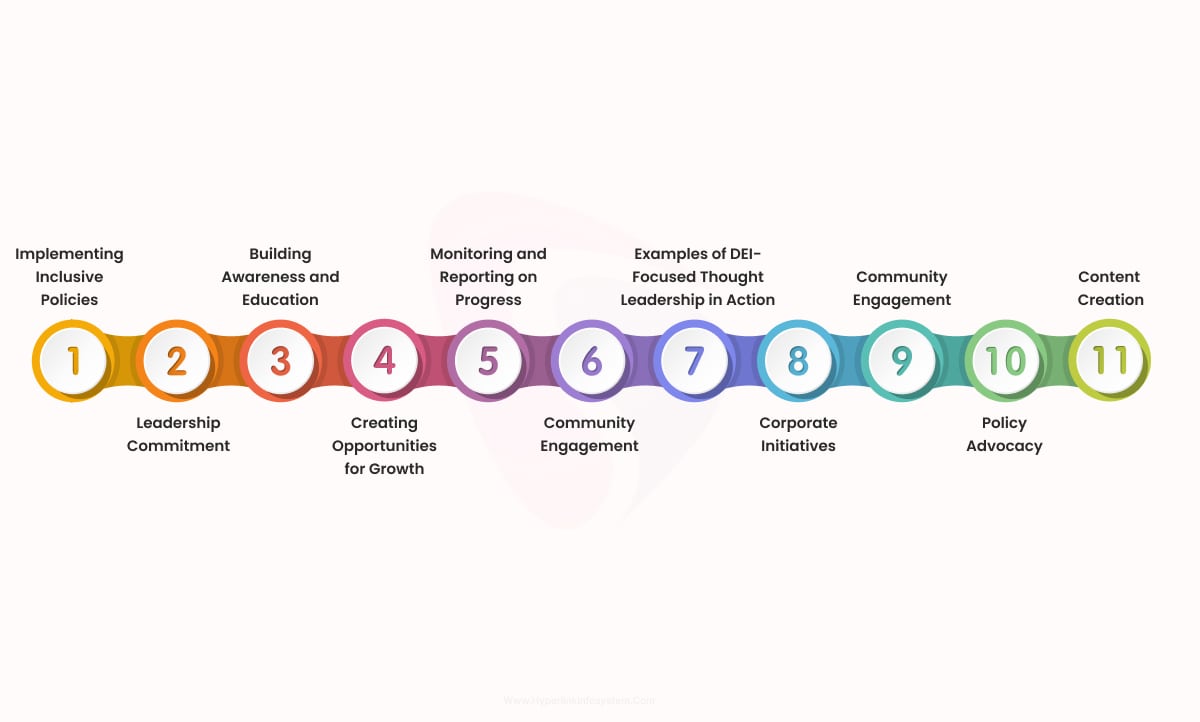
Version Control Systems
- Git: It is the most trusted and widely used version control system for tracking code changes, anomalies, or errors in code.
- GitHub: This is a pretty popular platform that's primarily known for hosting Git repositories and teaming with other developers from across the globe.
- GitLab: is a premium and comprehensive platform for software development, primarily things such as version control, CI/CD, and security features.
- Bitbucket: It's basically a Git repository hosting service and is highly popular for private repositories.
Cloud Platforms
- AWS (Amazon Web Services): is curated by the global powerhouse Amazon and is basically a comprehensive cloud platform that supplies a broad spectrum of services, including computing, storage, databases, and more.
- Azure (Microsoft Azure): Brought to you by the creator of Windows, it's basically a cloud platform exclusively from Microsoft, providing equivalent services to AWS.
- Google Cloud Platform (GCP): Created by Google, it's a very popular cloud platform from Google, presenting a spectrum of services like computing, storage, and machine learning.
- Code Collaboration and Sharing
- Stack Overflow: Stack Overflow is a prominent Q&A platform curated exclusively for developers to ask and answer questions related to concepts, trends, and other technologies.
- GitHub Discussions: This is a globally accessible platform for open-source communities and other developers to discuss code and unite on ongoing or upcoming development projects.
- Reddit: It is basically a forum outlet that is extremely popular among all kinds of individuals. Reddit is an amazing social news aggregation, web content rating, and discussion website, with many subreddits that are earmarked for programming and development.
Project Management Tools
- Jira: Jira is basically a premier project management tool that developers use for tracking issues, bugs, and tasks in their ongoing development projects.
- Trello: is a visual project management tool that's very helpful for developers who need assistance in organizing tasks and tracking their progress.
- Asana: Asana is a holistic and versatile project management tool that's basically useful for SMEs and large enterprises as well as remote developers for managing tasks, projects, and teams.
IDEs and Code Editors
- Visual Studio Code: Visual Studio Code is a popular code editor that provides developers and designers with a vast spectrum of extensions and features for their projects.
- IntelliJ IDEA: IntelliJ IDEA is a sophisticated integrated development environment (IDE) for Java and other programming languages that's revered by developers globally.
- Eclipse: Eclipse is a flexible integrated development environment (IDE) that supports a variety of languages for programming and is loved by developers for its agility.
- Sublime Text: Sublime Text is a popular lightweight and customizable text editor that's used by developers for correcting errors in spelling, punctuation, and grammatical errors.
Testing and Debugging Tools
- Postman: Postman is a very popular and widely utilized tool for API testing and development that's globally trusted by developers for its reliability.
- JUnit/TestNG: It's basically a part of Java testing frameworks.
- Selenium: Selenium is a beloved tool by developers and engineers for automating web browser interactions conveniently.
- Chrome DevTools: Curated by Google, Chrome DevTools is primarily a built-in browser tool for debugging web applications.
- Recognizing and taking advantage of these platforms enables developers to optimize their processes, interact successfully with other programmers, and create high-quality software solutions that perform.
Industries That Hire Developers
It's just your good mobile app development company that hires a developer for their projects. Bulk hiring of developers excelling in new programming languages or selecting handpicked professionals who are attending workshops or conferences has become a new way in which different industries approach developers for their projects.
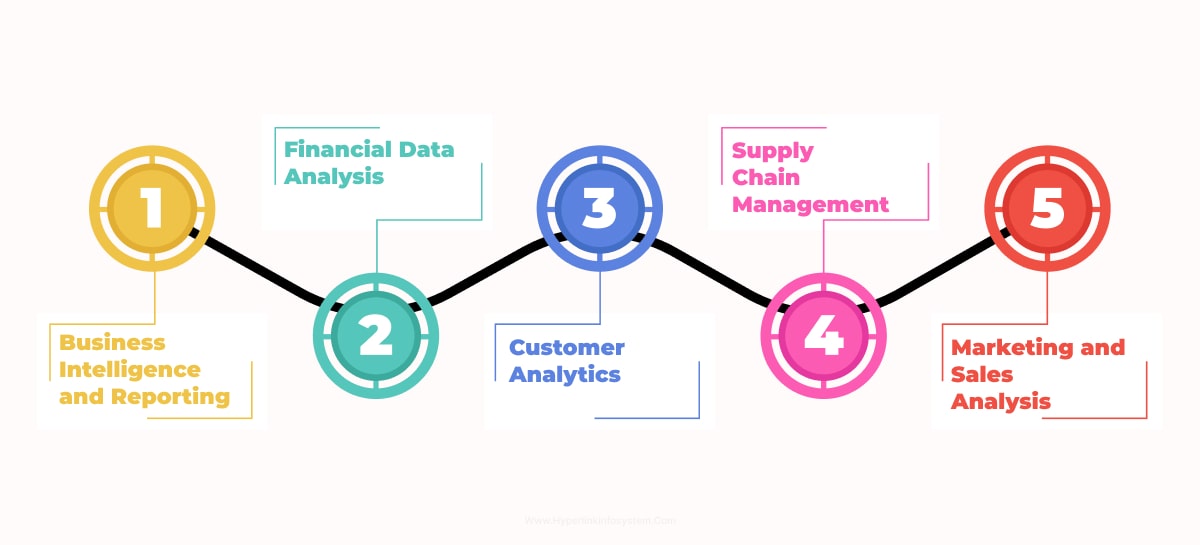
Technology Companies
- Software Companies: These are basically known for developing software applications, custom software products, and other operating systems.
- Tech Giants: Google, Apple, Microsoft, Amazon, and Meta hire app, software, and web developers for a wide range of positions, spanning software engineering, machine learning, and data science.
- Startups: Startups are the most amazing work opportunity for new developers waiting to start in the market with a good salary package. New enterprises frequently require developers to construct their products and platforms and this is a quite fruitful professional arena.
Finance and Banking
- Banks: In the field of finances, first-come banks need developers to create Internet banking systems, smartphone applications, and other finance-related software such as payment and invoice generation.
- Fintech Companies: Another player in the finance sector is the Fintech companies that hire app developers to create new financial technology solutions, including payment systems, investment platforms, and cryptocurrency exchanges.
Healthcare
- Healthcare IT Companies: In the field of healthcare, developers and researchers always stay engaged in the industry, are open to learning and are hired to develop electronic health records (EHR), medical imaging software, and different healthcare software solutions.
- Biotech and Pharmaceutical Companies: When you hire software developers, they curate custom software solutions to identify new drugs, conduct clinical trials, and analyze data.
Retail
- E-commerce Companies: Many e-commerce companies hire iOS developers in order to make them develop visually appealing online shopping platforms, engaging mobile apps, and inventory management systems.
- Retail Chains: Global retail chains and associations employ Android developers to assemble point-of-sale systems, consumer loyalty programs, and supply chain management software.
Telecommunications
- Telecom Companies: Developers here are hired to curate bespoke and custom network infrastructure, mobile apps, and customer service systems.
Government and Public Sector
- Government Agencies: Many international government departments hire custom apps and software developers to curate bespoke software for a variety of government functions, including taxation, social security, and healthcare.
- Military and Defense: International military forces hire engineers and developers to design and research military hardware and software systems.
Education
- Educational Institutions: Large colleges, universities, and educators of private tutoring hire remote developers, or some even hire freelance developers in order to create custom learning management systems, educational software, and research tools.
Media and Entertainment
- Media Companies: Media companies hire iOS as well as Android developers or even web developers to craft unique streaming platforms, video editing software, and feature-loaded content management systems.
- Gaming Companies: Even your popular game development company recruiters hire game developers to curate immersive and engaging video games for various platforms.
Automotive
- Automakers: Many organizations and automobile companies hire software developers to develop software for self-driving cars, infotainment systems, and vehicle diagnostics.
Outside these fields, programmers are always in high demand in domains such as aerospace, energy, and construction. As advances in technology occur, the need for skilled programmers, engineers, and developers is likely to plummet across a variety of enterprises.
How to Upskill Yourself as a Developer?
The tech industry across the globe remains an ever-evolving phenomenon. In order for developers to stay relevant and competitive, developers must constantly upskill themselves via online courses, webinars, and tutorials or even attending workshops or conferences. Below are some of the most effective strategies to improve your skills and advance your developer career:
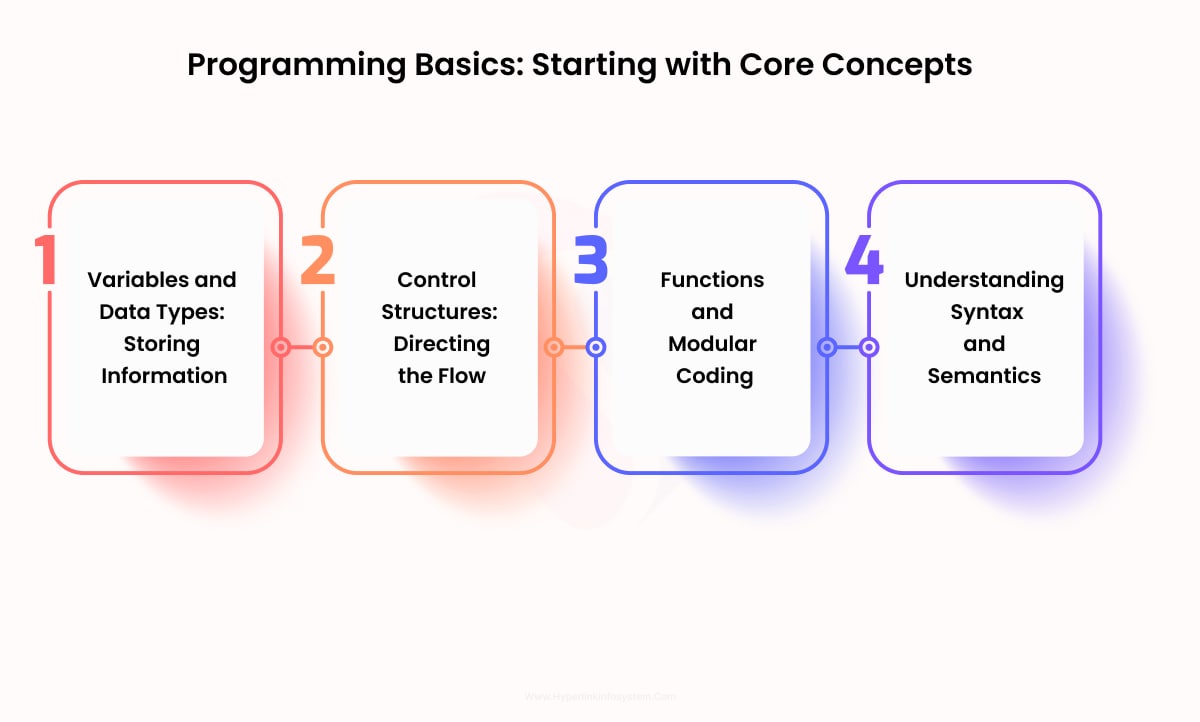
Continuous Learning
- Online Courses: Never underestimate the power of online courses, webinars, and tutorials. By utilizing platforms like Coursera, Udemy, and edX, you can unlock a world of courses on programming languages, frameworks, and software development methodologies.
- Tutorials and Documentation: Among the top trends and technology, many developers refer to official documentation and tutorials uploaded by program company owners and fellow developers to learn more about new technologies and best practices.
- Coding Challenges: Many fellow developers across the globe excitedly participate in diverse coding challenges on platforms like HackerRank, LeetCode, and Codewars to sharpen their problem-solving skills and even win some exciting prizes.
Specialize in a Niche
- Choose a Niche: Most developers stay engaged in the industry and are open to learning and tend to determine a specific area of interest, for instance machine learning, cybersecurity, AI, or mobile development, to establish their specialization.
- Deepen Your Knowledge: Developers also prioritize and take time to acquire in-depth knowledge and aptitudes in their chosen niche, industry, or specialization.
- Stay Updated: Keep up with the latest trends and technology in your niche; some fellow developers also like attending workshops or conferences.
Build a Strong Portfolio
- Personal Projects: Developers like to keep themselves challenged and often take on personal projects to demonstrate their abilities and inventiveness.
- Open-Source Contributions: Many developers believe that innovative ideas that are shaping the industry will change the world and help fellow developers by contributing to open-source projects to accumulate more experience and unite with other developers.
- Showcase Your Work: It's also useful and beneficial to create a professional portfolio website that highlights all your new and previously accomplished projects and skills.
Network with Other Developers
- Attend Conferences and Meetups: Attending workshops or conferences is an incredible way to connect with fellow developers, share expertise, and learn from their overall or exciting venture experiences.
- Join Online Communities: Developers also participate in online forums and communities like Stack Overflow and Reddit to meet new people and learn more stuff.
- Mentorship: It's important to seek mentorship; it doesn't matter if you're a junior developer or a senior developer Experienced developers get precise guidance and advice on projects and languages.
Stay Updated with Industry Trends
- Read Tech Blogs and News: Many developers, in order to stay updated with the latest trends and technology, follow industry news and the tech community portal to stay alert about every new development.
- Attend Webinars and Workshops: Some developers like attending workshops or conferences, while others even like to participate in online courses, webinars, and tutorials where subject matter experts speak and impart wisdom and tips on languages.
- Subscribe to Newsletters: Developers can subscribe to newsletters from different tech companies and industry leaders across the globe that are available on email, LinkedIn, and other portals.
Practice Regularly
- Coding Challenges: Developers love to upskill themselves by solving coding challenges frequently to enhance their problem-solving or troubleshooting skills.
- Build Side Projects: Apart from upskilling, working on personal projects to apply your knowledge is the best way to learn and explore new technologies that could come in handy in the future.
- Contribute to Open Source: You can also collaborate with other developers on open-source projects to have a different kind of project experience.
Seek Feedback and Iterate
- Code Reviews: You can also start your code reviews by asking colleagues or mentors to have a look or provide a thorough review of your code and provide accurate feedback.
- User Testing: It's also advised by programming experts to test your applications with real users before launching any solution to the market to gather prompt feedback and make timely improvements.
- Continuous Improvement: Developers can utilize this feedback as a learning opportunity in order to further refine their skills and improve their work.
Cost of Developers-Hiring Factors
Whether you need to hire developers from a renowned mobile app development company, it's important to check the cost-affecting factors involved in hiring dedicated developers for peculiar projects:
Hiring Models
The recruiting model's cost calculation is mostly based on timetable modules such as hourly, full-time, or fixed-price projects. Monthly rates often range from $3500 to $13,000. Fixed-price contracts range from $11,000 to more than $200,000, depending on the project's needs, duration, and scope.
Developers Location
Selecting to hire from distinct regions results in varied pricing ranges depending on local economies and the relative demand for technical talents in those places. Developer fees in the United States and Canada range from $75 to $160 per hour; Western European developers charge between $55 and $140 per hour; while Southeast Asian and Latin American developers charge the lowest fees, starting at $18 and rising to $80 per hour.
Developer's Experience
The degree of knowledge and experience of the developers you hire for your custom development projects is usually classified into three categories and priced appropriately. Junior developers typically charge between $16 and $60 per hour; mid-level developers begin at $35 and quickly rise to $120 per hour; while senior developers with master specialty price between $70 and $170 per hour.
Why Hire Developers with Hyperlink InfoSystem?
Hyperlink InfoSystem is a leading app and software development company with a proven track record of delivering high-quality solutions across diverse industries and categories. Since their inception in 2011, they have provided top-tier solutions to leading global clients and established a solid foundation across many countries.
- Get access to a pool of skilled developers proficient in various programming languages, frameworks, and technologies.
- Their team of developers and thought leaders holds deep understanding of industry trends and best practices.
- Their developers hold an incredible knack for breaking down complex problems into effortless solution offerings.
- They adapt to the most trending and compatible tech stacks, tools, and languages to deliver innovative solutions.
- Hyperlink InfoSystem always follows the agile development methodology to ensure flexibility, adaptability, and quicker time-to-market.
- They offer a client-centric approach and foster an environment of collaborative partnerships to ensure strong client relations for years to come.
- The company offers competitive pricing with high-quality development solutions across various domains.
Conclusion
Staying current in technology is optimal for any developer and requires a continual process of learning new technologies, adapting to new solutions, and networking with fellow developers and communities. Developers have the capacity to thrive regardless of how the industry advances by understanding the basics of the trade, embracing new tools, refining their soft skills, and being actively involved in multiple developer networks. With an allegiance to progress, a pledge to stay engaged in the industry, and being open to learning, you will not only stay current in the industry but also discover fascinating chances in new and growing enterprises.
FAQs
Q: Why is continuous learning so important for developers?
Continuous learning enables engineers to stay current with new tools, languages, and industry trends. Because technology develops so quickly, developers must update their skills on a regular basis to remain competitive and adaptive.
Q: How can I find time for continuous learning with a busy work schedule?
Developers can begin by attempting to set aside modest, regular time blocks each week. You may listen to podcasts on your commute, take online classes on weekends, or spend a few minutes each day reading industry blogs or practicing on coding platforms.
Q: What are the core skills that developers should focus on?
Ans: Some major core skills are:
- Strong and precise understanding of data structures and algorithms, software design principles
- Proper familiarity with databases and software architecture
- Adaptability and communication as soft skills need to be solid for developers.
Q: Is it necessary to learn every new language or framework?
Always remember that as a developer, not every new tool or language is required. Most importantly, you must be familiar with some of the big ones or any area in which you intend to concentrate. Concentrate on studying those that correspond to your professional objectives or the requirements of your present position. Strong fundamentals will enable you to pick up any new language or technology as needed.
Q: What resources can help me stay updated on industry trends?
Ans: Some resources that cover tech trends and technology are:
- Blogs: Hacker News, TechCrunch, and Medium
- Online courses, webinars, and tutorials: Coursera, Udacity, and Pluralsight
- Professional networks: LinkedIn, email newsletters, Reddit, Quora
- Conferences, webinars, and podcasts



















